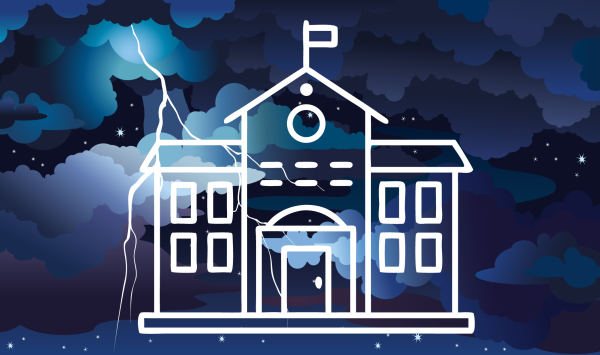P.E.A.C.E. Program encourages dialogue on social justice, university policy
By Rebecca Farias | News Manager
Although the P.E.A.C.E. Program advertised its Sept. 6 meeting as a fireside chat with President Farish, it was clear that the student body took the initiative in driving the conversation, even when topics got uncomfortable.
The newly created P.E.A.C.E. Program, not yet an official organization, stands for “Peer Empowerment, Activism, and Community Engagement.” It is comprised of several student P.EA.C.E. Keepers who wish to promote equity, inclusion, and critical thinking while inspiring renewed student activism on campus.
Phoebe Thaler, P.E.A.C.E. Program Coordinator, headed a panel of three other student Keepers: Meg dela Dinco, Ava Binns, and Lily Schenk. P.E.A.C.E. Keepers Rachel Campbell, Brianna Messa, Megan Mooney, and Tyler Porter facilitated the discussion. Notable faculty members in attendance included President Farish, Vice President John King, and newly hired Chief Diversity Officer Ame Lambert and LGBTQ Center Coordinator Gaby Porcaro.
Thaler explained that the Keepers organized and contacted President Farish. The Keepers then met with Farish, explaining that they would like to discuss changing or retaining university policy in an open setting. Farish agreed, and, impressively, they initiated an ongoing series of fireside chats, all projected with Farish in attendance.
Farish spoke first, with a grave but optimistic message. He admitted that the post 9/11 world is troubling, but “the more that we can work together, the more effective we can be.” He spoke about the issue of a campus responding to national and global challenges:
“I wish that I could say that I could create an umbrella…You know I can’t do that,” Farish said, speaking on his desire to protect all students. “You’re not alone. You have your friends, your roommates, and you have me…We won’t be changing our policies to go along with crazy Washington,” he continued, responding directly to recent actions of the Trump administration, including the ban on transgender individuals in the military and anti-immigration rhetoric.
“I never imagined we would go backwards,” said Farish, speaking from his own experience living through the Civil Rights movement. To counter the rising tide of bigotry, Farish encouraged students to remain involved, then pointed to his two new hires as evidence of his, and by extension the university’s, allyship.
“We will always be there with you,” he ended.
Facilitators then asked a series of questions designed to spark debate among the students and faculty. Those in attendance discussed the recent acts of terror inflicted by white supremacists upon peaceful protesters in Charlottesville, and President Trump’s lukewarm response. President Farish commented that white men like himself could feel disinterested because of their ethnicity, but they should fight this idea before racism escalates even more than it already has.
Keith Jillette, a sophomore student senator, gave an impassioned response describing his own counter protest experience at the recent Boston free speech rally.
“We all have responsibility to stand up…for what the country should stand for, not just what we stand for personally,” Jillette said. “That’s why I felt like I should go. Thousands of other people went. If all of these other people can put everything aside for nothing, how can I not go?”
When asked how students could speak out against hate even if they could not get to a protest, Jillette had an eloquent suggestion. “The main thing is being aware,” he argued. “It’s not just about listening to CNN in the Commons; this had nothing to do with the grassroots activity regarding anything. You have to look for sources of protest. People will talk about stupid things like what Kim Kardashian is up to, but they will never talk about why you should be involved in standing up against things like the [Keystone XL] Pipeline or white supremacy. Look for ways to be involved. Even donating at Taco Bell is better than doing nothing.” Bottom line? “It is easier to do nothing, but feels better to do something.”
Students took control when responding viscerally to a personal question that often had them speaking out against the establishment in the presence of the president and vice president themselves. Several students argued that RWU does not “do enough to stand up for minoritized students.” One said she was disquieted at the lack of diversity among teaching staff, and only once “learned from someone who looked like myself.”
Still, others felt that RWU was “comparatively good” in its attempts at inclusion, but still has a long way to go. A main problem cited was student apathy in social justice causes, an issue for which both the P.E.A.C.E. Keepers and President Farish agreed to advocate.
These fireside chats will continue starting Oct. 4, the first Wednesday of the month, in the Mary Teft-White Center on the first floor of the Main Library. All students and faculty are encouraged to attend, and no reservation is necessary.





